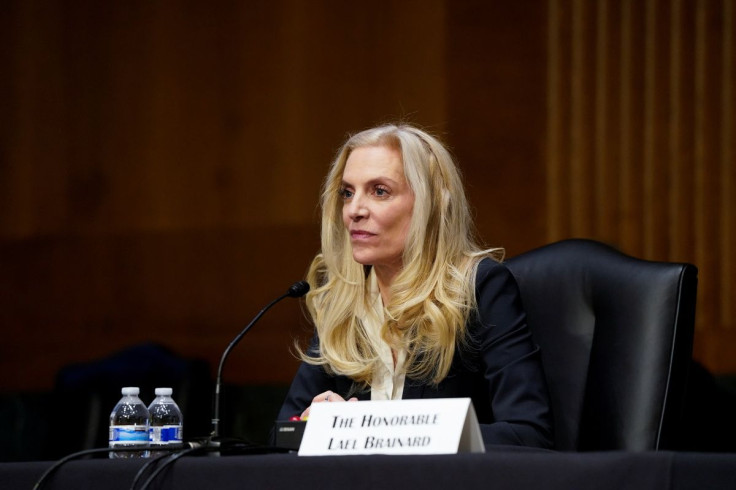Fed's Brainard Nears Senate Nod, As COVID Complicates Outlook For Cook

Lael Brainard, one of President Joe Biden's nominees to the Federal Reserve, was poised to become the U.S. central bank's next vice chair on Tuesday, but COVID-19 cases among Democrats in Congress muddled the prospects of a second Fed nominee without similar bipartisan support.
The Senate was scheduled to hold a final confirmation vote on Tuesday at 2:15 p.m. ET (1815 GMT) on Brainard, a current Fed governor. Eight Republicans joined Democrats in voting 54-40 on Monday to end debate on Brainard's nomination.
The Senate was also poised to take first steps toward a confirmation vote for Michigan State University's Lisa Cook, but a senior Democratic aide said that vote would be delayed because her confirmation could require the participation of all 50 Democrats in a 100-member Senate evenly split between Biden's Democrats and rival Republicans.
Democrats' plans were thrown into doubt after disclosures on Tuesday from Connecticut Senator Chris Murphy and Oregon Senator Ron Wyden that they had tested positive for the virus. Vice President Kamala Harris, a Democrat who could cast a tie-breaking vote, also reported on Tuesday she had tested positive.
The Senate was expected to schedule confirmation votes this week for Fed Chair Jerome Powell, renominated to his current position, and Davidson College dean of faculty Philip Jefferson, nominated to a vacant seat on the Board. Both were expected to win bipartisan support.
At its policy meeting next week the Fed is widely expected to deliver a half percentage point interest rate hike and announce the start of a reduction in its giant balance sheet as it ramps up its fight against 40-year high inflation.
Cook and Jefferson would likely join after that meeting, taking part in deliberations over what are expected to be interest-rate hikes at every subsequent Fed meeting this year and into at least the first part of next year.
Cook would be the first Black woman to serve on what is currently an all-white Fed Board, and Jefferson would be the fourth Black man to serve in the central bank's more than 100-year-old history.
© Copyright Thomson Reuters 2024. All rights reserved.





















